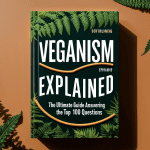A well-planned vegetarian diet can provide most of the nutrients needed for optimal health. However, some vitamins and minerals are harder to obtain without animal-based foods, making supplementation a helpful choice for many vegetarians. Here are the top vitamins to consider for a balanced and nutritious vegetarian lifestyle:
1. Vitamin B12
- Why It’s Important: Vitamin B12 supports nerve function, DNA production, and red blood cell formation. B12 deficiency can lead to anemia, fatigue, and cognitive issues.
- Vegetarian Sources: Natural sources are limited in plant foods. Some fortified plant-based milks, cereals, and nutritional yeast contain B12.
- Supplement Recommendation: Since it’s challenging to get enough B12 solely from fortified foods, many vegetarians benefit from a B12 supplement, often available in tablet, liquid, or sublingual forms.
2. Vitamin D
- Why It’s Important: Vitamin D is crucial for calcium absorption, bone health, immune support, and mental health.
- Vegetarian Sources: Sun exposure is the best source, though it can vary by season and location. Some mushrooms exposed to UV light also provide small amounts.
- Supplement Recommendation: A D3 supplement derived from lichen (a vegan source of D3) is recommended for vegetarians, especially during winter or in regions with limited sunlight.
3. Iron
- Why It’s Important: Iron is necessary for oxygen transport in the blood and energy production. Vegetarians may be at higher risk for iron deficiency, as plant-based iron (non-heme) is not as readily absorbed as animal-based iron.
- Vegetarian Sources: Lentils, chickpeas, beans, tofu, dark leafy greens, quinoa, and fortified cereals.
- Supplement Recommendation: If iron levels are low, a gentle iron supplement can help. Vitamin C aids absorption, so combining iron-rich foods with vitamin C sources like citrus fruits or bell peppers can also increase intake.
4. Omega-3 Fatty Acids
- Why It’s Important: Omega-3s are essential for brain function, cardiovascular health, and reducing inflammation. Plant-based sources are mostly in the form of ALA, while the more potent forms, DHA and EPA, are found in fish.
- Vegetarian Sources: Flaxseeds, chia seeds, hemp seeds, walnuts, and algae oil.
- Supplement Recommendation: Algae-based omega-3 supplements provide DHA and EPA directly, making them a good choice for vegetarians looking to support brain and heart health.
5. Calcium
- Why It’s Important: Calcium supports bone health, muscle function, and nerve transmission.
- Vegetarian Sources: Leafy greens, almonds, tofu, broccoli, and fortified plant milks.
- Supplement Recommendation: For those who avoid dairy or struggle to meet their daily calcium needs through food alone, a calcium supplement can be beneficial. Many multivitamins also include calcium.
6. Zinc
- Why It’s Important: Zinc is essential for immune health, wound healing, and DNA synthesis. It’s less bioavailable in plant foods, meaning vegetarians might need to consume more to meet their needs.
- Vegetarian Sources: Chickpeas, lentils, beans, pumpkin seeds, and whole grains.
- Supplement Recommendation: A small zinc supplement can support immune function, especially if vegetarian sources aren’t consumed regularly.
7. Iodine
- Why It’s Important: Iodine is essential for thyroid function, which regulates metabolism and energy levels.
- Vegetarian Sources: Iodized salt, seaweed, and some dairy products (if included in the diet).
- Supplement Recommendation: If your diet doesn’t include iodized salt or seaweed regularly, a low-dose iodine supplement can help maintain thyroid health.
Practical Tips for Choosing Vegetarian Supplements

- Look for Vegetarian Certifications: Ensure supplements are labeled as vegetarian or vegan.
- Focus on Bioavailability: Some forms of vitamins and minerals are better absorbed than others, so choose high-quality supplements for the best results.
- Consider Multivitamins: A well-formulated vegetarian multivitamin can provide many of these essential nutrients in a single supplement, making it easier to stay consistent.
Supporting Your Health with Balanced Nutrition
While supplements can help fill nutritional gaps, focusing on a balanced diet with a variety of fruits, vegetables, whole grains, legumes, nuts, and seeds will help you meet most of your dietary needs.












